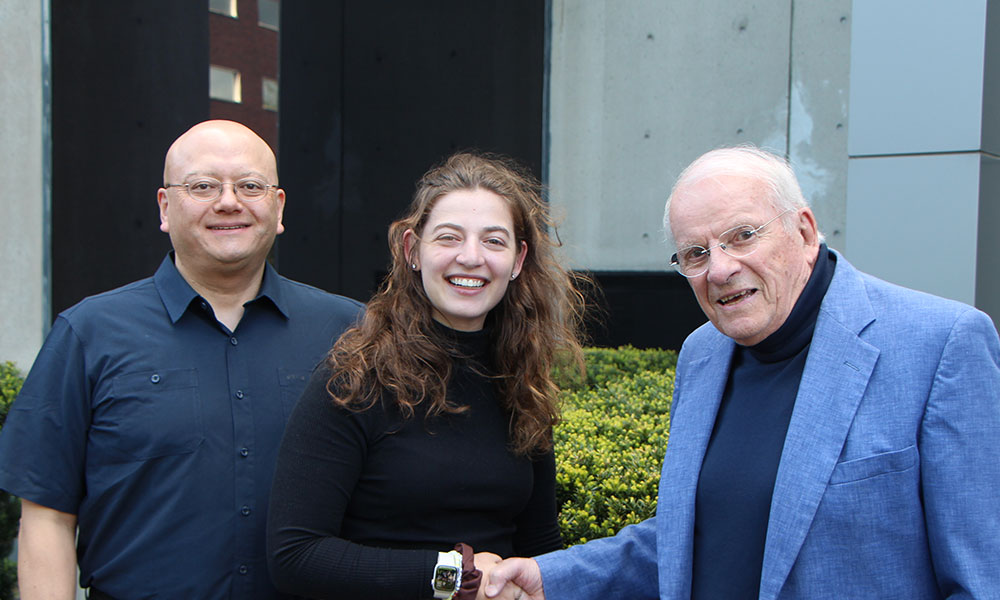Step 1: Read over our advice on picking a great lab/mentor
Step 2: Search for a lab. The best method is to start your search on the web. Here are some helpful links:
This is not a comprehensive list. Students have found labs in the chem, scrb, heb, or oeb engineering departments. Feel free to search and let us know when you decide. Our only requirement is that the lab is studying cells or signals of the brain.
In addition to these online resources, Dr. Kate Penner, our Undergraduate Research Advisor, is available to meet with students who are early in their lab search. Check out the resources on the “Research Advising” website.
Step 3: Generate a list of labs and make contact.
We recommend that you identify anywhere from 3-10 labs that interest you. If you’d like help refining your list or would like input on the labs you have selected, Dr. Draft or Dr. Magnotti will be happy to go over your list in a meeting. You may also wish to talk to students in those labs.
When you are ready to contact a lab, you should send an email to the research director (also called lab head or “PI” – principal investigator). You should first read these very helpful tips provided on the Life Sciences Research page that talk about how to find and approach labs.
It is typical for students to contact several labs at a time (and you may not hear back from each one). If you don’t hear back after your first email, send another email a week later. Often PIs miss the first email. Ideally a lab head will respond by inviting you to come by the lab for a meeting where you can discuss potential projects. If you unsure about which lab is best for you, it is ideal to meet with at least 2 different lab heads before making your decision.
Step 4: Begin your research.
Once you settle on a lab, you can begin your research. Some students choose to volunteer in the lab (anywhere from 5-10 hours per week). Starting in your junior spring you can receive course credit for your lab work by enrolling in Neuro 91 (15 hours per week). You may instead apply to be paid by the Harvard College Research Program (which funds during term time as well as over the summer: check the funding deadlines).
For Joint concentrators:
If you are unsure whether your research project fits all of the criteria above, discuss it with your academic advisor ASAP.
Below are deadlines and guidelines for potential thesis writers. Please complete the appropriate form depending on whether you are enrolled in an independent research course (Neuro 91 or 99) or not.
Note: Joint Concentrators must also turn in the Lab Info Sheet by the first day of classes of their 6th semester (typically junior spring).
Potential Thesis Writer Enrolled in Neuro 91 or 99
Thesis Writer NOT Enrolled in Neuro 91 or 99
Combined Thesis Proposal and 91 Final Report
Due dates:
Fall (Off Cycle February 2026 grads): Monday, December 9, 2024 @11:59 PM ET
Spring (May 2026 grads): Tuesday, May 6th, 2025 @ 11:59 PM ET
Due dates:
Fall (Off Cycle February 2026 grads): Monday, December 9, 2024 @11:59 PM ET
Spring (May 2026 grads): Tuesday, May 6th, 2025 @ 11:59 PM ET
Due Dates:
Spring (May 2025 grads): Final thesis due Friday, March 14th, 2025 @5 PM ET
Fall (Off Cycle February 2026 grads): Final thesis due Friday, November 14th, 2025 @5 PM ET
Due Dates:
Spring (May 2025 grads): Final thesis due Friday, March 14th, 2025 @5 PM ET
Fall (Off Cycle February 2026 grads): Final thesis due Friday, November 14th, 2025 @5 PM ET
Potential Thesis Writer Enrolled in Neuro 91 or 99
Combined Thesis Proposal and 91 Final Report
Due dates:
Fall (Off Cycle February 2026 grads): Monday, December 9, 2024 @11:59 PM ET
Spring (May 2026 grads): Tuesday, May 6th, 2025 @ 11:59 PM ET
Due Dates:
Spring (May 2025 grads): Final thesis due Friday, March 14th, 2025 @5 PM ET
Fall (Off Cycle February 2026 grads): Final thesis due Friday, November 14th, 2025 @5 PM ET
Thesis Writer NOT Enrolled in Neuro 91 or 99
Due dates:
Fall (Off Cycle February 2026 grads): Monday, December 9, 2024 @11:59 PM ET
Spring (May 2026 grads): Tuesday, May 6th, 2025 @ 11:59 PM ET
Due Dates:
Spring (May 2025 grads): Final thesis due Friday, March 14th, 2025 @5 PM ET
Fall (Off Cycle February 2026 grads): Final thesis due Friday, November 14th, 2025 @5 PM ET
Thesis Guidelines and Formatting – Important!
For information on deadlines and formatting your thesis, please read the Thesis Guide 2024-25
Title page and honor code
Reference Managers
This page compares various reference managers (Endnote, Mendeley, Zotero): https://guides.library.harvard.edu/cite/compare
Thesis Workshops and Resources
ARC Resources
You can see and search for previous Neuroscience Theses using the Database above, or
in Hollis using the search terms: “Honors in Neuroscience” AND “Harvard College”
Congratulations to Jess Leff the 2024 Dowling Prize winner!
Link to the article about Jess’ thesis.

We would also like to congratulate our 2024 Hoopes Prize winner Daniel Kwon

